Travel to this pitiless, secretive country a serious danger
Alek Sigley should buy a lottery ticket; he was at grave risk. Remember Otto Warmbier.
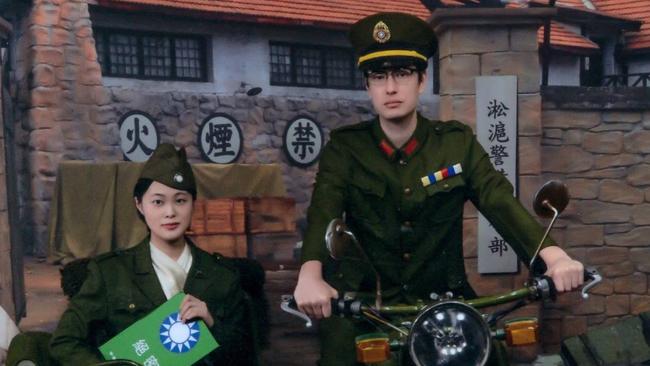
Australian student Alek Sigley should be buying lottery tickets by the score. The depth of the danger into which he was plunged after his June 25 arrest in Pyongyang by the North Korean authorities was starkly revealed when the Korean Central News Agency released a statement at the weekend.
“He honestly admitted his spying acts of systematically collecting and offering data about the domestic situation of the DPRK (Democratic People’s Republic of Korea) and repeatedly asked for pardon, apologising for encroachment upon the sovereignty of the DPRK,” the official voice of the North Korean regime said.
The 29-year-old from Perth was “caught red-handed committing anti-DPRK incitement through the internet”, and had been expelled last Thursday, after nine days’ detention, out of “humanitarian leniency”, the statement added. The reason for his arrest may never be known.
Life in a dictatorship
Despite Sigley’s confidence while living in Pyongyang for two years, after first visiting seven years ago, the regime’s record testifies to the dangers of living in, or even visiting, the hereditary communist dictatorship.
The most notorious recent case was that of US student Otto Warmbier, who was arrested there in January 2016, aged 21, accused of committing “hostile acts”, and sentenced to 15 years’ hard labour. He was flown home in a coma 18 months later, and died without regaining consciousness.
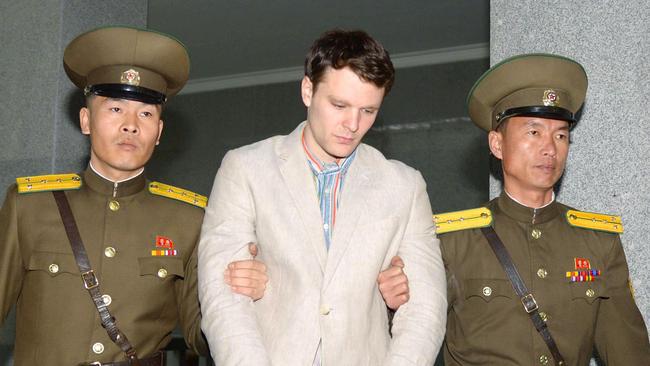
Warmbier had been detained at the end of a five-day visit organised by travel company Young Pioneer Tours, promoting trips to “the places your mother wants you to stay away from”. He had entered an off-limits staffroom at the Yanggakdo Hotel and souvenired a banner proclaiming undying loyalty to leader Kim Jong-un.
MORE: North Korea ‘was lenient’ on Sigley
Before Sigley, the previous Australian detainee there was Hong Kong resident John Short, who was arrested in 2014 at the age of 75 for distributing biblical tracts. He was released 15 days later on humanitarian grounds due to his age, KCNA said. The occasional arrests of Americans — visitors and temporary residents — have mostly also been related to Christian missionary activities.
But besides detaining visitors, North Korea has also dragged in individuals from the neighbourhood — chiefly abducting South Koreans, but also, from 1977 to 1983, at least 17 Japanese people, kidnapped and taken on spy vessels back to the DPRK to teach secret agents, including assassins, how to behave as if they were Japanese. The abductees include Megumi Yokota, who was 13 when she was taken in 1977. She is believed to be still living in North Korea but unable to contact her aged parents or brothers.
‘A pitiless place’
Former Australian High Court judge Michael Kirby, who brought down a report for the UN in 2015 on human rights violations in North Korea after he chaired a commission of inquiry, told me two years ago that nothing in his 35 years as a judge had prepared him for the “systematic, widespread and gross human rights violations” there.
He described North Korea as “a pitiless place … a land of ceaseless propaganda, of torture and inhuman treatment, of arbitrary arrest and detention, of public executions to which schoolchildren are brought to look and learn what happens to state enemies”.
The ordinary prisons of North Korea, Kirby concluded after two years of receiving evidence, were places of “extermination and murder, torture, rape and other grave sexual violence … conditions similar to enslavement … shocking shortages of food and hygiene … where crimes against humanity are a feature of daily life. Brutality attends trivial infractions, especially by foreigners.”
Last month, the South Korea-based Transitional Justice Working Group released a report, Mapping the Fate of the Dead, which identified 318 sites in North Korea it said were used by the government for public executions. Capital offences can include political dissidence, defection, piracy, religious proselytising and consuming unapproved media.
Upbeat and apolitical
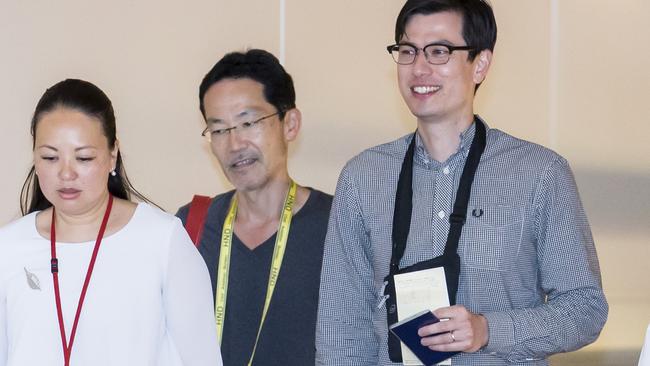
Sigley’s occasional media posts and his North Korean record appear strikingly innocent even by the standards of the regime’s paranoia. His father, Gary Sigley, a professor of Asian studies at the University of Western Australia, is a well-known expert on China; his mother was born in Shanghai.
Alek Sigley said in his introductory article for the NK News website that, partly as a result of this background, “ever since I was a child, I’ve had a strong interest in East Asia”. “I’ve also always been fascinated by socialism — my father, like many in the humanities and social sciences, has decidedly progressive political views, my mother spent a tumultuous youth during the Cultural Revolution, and my favourite class in high school was history, where I took a formative semester studying the Russian Revolution and early USSR,” he wrote.
He explained how, while studying at the prestigious Fudan University in Shanghai, he had encountered students from North Korea. “They were mostly a bit shy, but a few would chat with me when I bumped into them around campus,” he said.
“One of them, a graduate of Kim Il-sung University, was particularly friendly, and one day suggested that I visit his country to see socialism up close. Unfortunately, his kind invitation for me to visit his home in Pyongyang never came to fruition.”
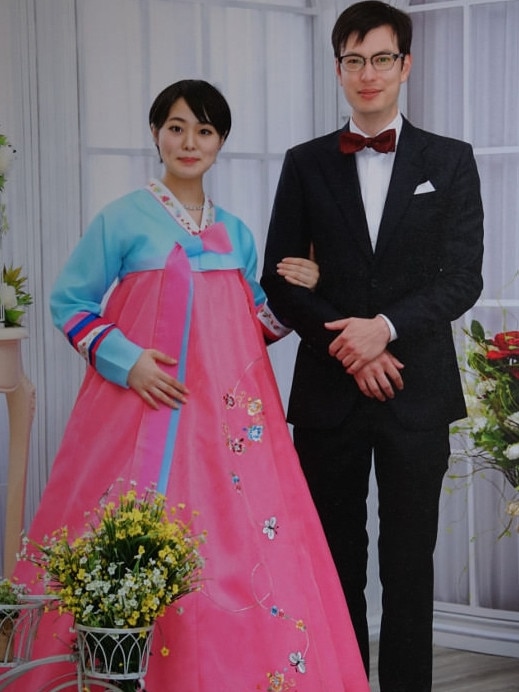
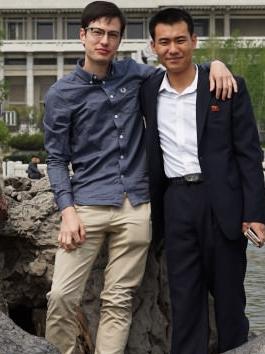
He also met many students at Fudan from South Korea, and began learning Korean in 2011, leading to his seeking and gaining a place to study Korean literature for a master’s degree at Kim Il-sung University, North Korea’s leading educational institution, from early last year.
He had met Yuka Morinaga, a Japanese computer programmer aged 26, earlier when they were students at the Australian National University, and they married at a colourful ceremony in Pyongyang 18 months ago. She later returned to Tokyo, where they were reunited following his release.
She had posted online: “He is always trying to demystify North Korea unlike the typical Western media. He tries to understand the people there.”
While at ANU, Sigley organised Tongil Tours to take foreign visitors in to North Korea for educational and cultural exchanges. His North Korean tour partners had suggested hosting his wedding to Morinaga, who — Sigley wrote for NK News — “not only tolerates but even encourages my zany interests”, although “being in a long-distance marriage is the hardest part of living in Pyongyang”.
Sigley wrote in The Guardian this year: “I have nearly unprecedented access to Pyongyang. I’m free to wander around the city, without anyone accompanying me. Interaction with locals can be limited at times, but I can shop and dine almost anywhere I want.”
The data that Sigley is accused of “systematically collecting and offering” principally concerns that shopping and dining, KCNA says.
His chief outlet has been NK News, the leading specialist English-language website about North Korea. KCNA said Sigley “combed” through Pyongyang, providing photos and other information to NK News and other “anti-DPRK” media.
The site’s chief executive, Chad O’Carroll, says: “Alek Sigley’s well-read columns presented an apolitical and insightful view of life in Pyongyang, which we published in a bid to show vignettes of ordinary daily life in the capital to our readers.
“The six articles Alek published represent the full extent of his work with us and the idea that those columns, published transparently under his name between January and April 2019, are ‘anti-state’ in nature is a misrepresentation which we reject.”
The articles are lively, thoroughly illustrated, and upbeat in tone. They provide an intriguing glimpse into change in North Korea — a country with a similar-sized population to Australia — especially within its embryonic, aspirational middle class, while scarcely even hinting at criticism of the all-enveloping political system.
Two of the articles are about apps now available within the heavily policed North Korean internet, two are on men’s and women’s fashion — he describes a rare sighting of a “hipster” in Pyongyang — one is on dining out in the city, and one more generally introduces himself, his university life and his fascination with the country and its culture.
He describes dining at almost 100 restaurants in what he calls the “Capital of the Revolution”, chiefly with friends from his dormitory — where he shared what appeared from the photos to be a modern, comfortable room with a Korean student of English. He and other foreign students could gain access to some of the eating places only because they were residents.
His top choice is Ryongbuk Shop, on the second floor of “a nondescript building in a small alleyway”, whose offerings range from Chinese dry hotpot to pizzas — while in ambience he is drawn to the Mansudae Restaurant’s “sort of faux Victorian aesthetic”.
He also commends the Unjong Comprehensive Service Centre Foreign Dishes Restaurant for a great salmon in lemon sauce.
His local tablet computer came with a range of apps, and he bought about 10 more from a store near his dormitory. They include, he posted, Kiltongmu — North Korea’s version of Google Maps, and possibly an item the authorities might not wish to be shared with foreigners, despite Sigley’s innocent comment that “one can see everything marked, from Pyongyang’s biggest and most iconic monuments to all its little neighbourhood stores and restaurants”.
Another app, Guitar Enthusiast, helps teach people to accompany a list of songs, “many of which praise the party and the leadership, others which sing of the values of comradeship, in addition to a love song or two”.
Sigley also reviews The Invincible Boy General, which “revolves around the patriotic and brave main characters who valiantly rise up to defend their country from outside invasion”, and another app that “contains an interesting depiction of dastardly American sailors kidnapping Korean children”.
Saved by Trump?
The timing of Sigley’s arrest remains perplexing, since he has been posting such articles all year. But all media outside Pyongyang’s control are viewed as at least potentially hostile, and NK News does contain detailed stories on North Korea’s governance and economy, as well as on fashions and restaurants. Sigley’s case will act as a warning against anyone seeking to report from North Korea on any topic.
It is possible that the June 30 visit of US President Donald Trump to meet Kim in the demilitarised zone between the Koreas provided the opening for the diplomatic foray to have Sigley released. Pyongyang would not have wanted any distraction from the propaganda triumph of having Trump step into North Korea.
And now, South Korean President Moon Jae-in is seeking a pan-Korean summit, another event the north will wish to succeed — given that its core goal remains the unification of the peninsula.
A statement released on Sigley’s behalf says he “will not be holding a news conference or taking part in media interviews”. But he did thank Scott Morrison, Foreign Minister Marise Payne, and especially Kent Rolf Magnus Harstedt, Sweden’s special envoy to North Korea, whose role in the release proved crucial.
KCNA acknowledged merely that Harstedt and his party “left here for home on Thursday. During their stay, they toured the Korean Stamps Museum and the Ryuwon Footwear Factory.” When Harstedt arrived, Pyongyang had not even admitted to holding Sigley in custody.
Home Affairs Minister Peter Dutton last week offered Sigley some strong personal advice: Stay in Japan, or return to South Korea or to Australia. “All of those would have to be better options before he returns to North Korea. I don’t think he will put himself back in that situation … it could have ended up very differently,” he said.
Rowan Callick visited North Korea for a week while working as The Australian’s China correspondent, and filed a series of reports for this newspaper
-
Warmbiers pursue claim for North Korean cargo ship
The parents of Otto Warmbier have filed a claim for a seized North Korean cargo ship, seeking to collect on a multimillion-dollar judgment awarded in the US college student’s death.
The Warmbiers filed court papers in New York federal court saying they have a right to the assets after North Korea failed to respond to a wrongful death claim that accused it of abducting Warmbier, who had travelled there for a guided tour ahead of a study-abroad program in Hong Kong.
The Warmbiers say their son was tortured after being convicted of trying to steal a propaganda poster, and imprisoned for months.
He suffered severe brain damage but doctors were unable to determine what led to it. The 22-year-old died days after being returned to the US in a vegetative state in 2017.
“The Warmbiers are committed to holding North Korea accountable for the death of their son Otto, and will work tirelessly to seize North Korean assets wherever they may be found,” Ben Hatch, a lawyer for the family, said yesterday in an emailed statement.
North Korea has rejected claims by relatives it tortured Warmbier and says he was provided “medical treatments and care with all sincerity”.
US President Donald Trump has condemned Warmbier’s treatment but said earlier this year he did not believe North Korea’s leader, Kim Jong-un, knew about it or would have allowed it to occur.
North Korea did not respond to the wrongful death lawsuit that accused it of detaining Warmbier at Pyongyang airport “in an attempt to extract various concessions from the United States government”.
US district judge Beryl Howell ruled last year that North Korea “more likely than not barbarically tortured Otto to extract a false confession” and used his lengthy prison sentence as leverage to further its foreign policy objectives.
She ordered North Korea to pay $US501 million for its “barbaric mistreatment” of Warmbier, saying his family “experienced North Korea’s brutality first-hand”. In the latest court filings, Warmbier’s parents claim a right to the North Korean cargo ship, which the US seized in May because it was carrying coal in violation of UN sanctions.
The vessel, North Korea’s second-largest cargo ship, was detained in April last year by Indonesia while transporting a large amount of coal.
The US later announced it had seized the 17,061-tonne carrier in a first-of-its kind enforcement that came amid a tense moment in relations with North Korea.
AP

